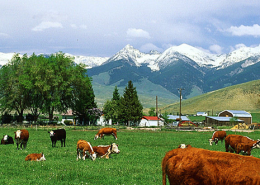Trade Horizons to 2020: Issues and Perspectives for Vietnam
Place: Vietnam • Dates: 2002-2003 • Partners: Danida
Project Summary
China’s economic emergence will have profound implications for the East Asian regional economy, providing new opportunities but posing new challenges for its neighbors. Similarly, economic growth in China will bring opportunities and challenges for Vietnam, and more specifically Vietnam’s agricultural sector. China’s growing urban population and expanding food consumption will mean higher levels of agricultural imports, particularly over the longer term. Alternatively, more efficient and higher quality food production in China could pose a competitive threat to Vietnamese farmers and agri-businesses, both in third-country markets and in Vietnam.
For Vietnamese policymakers, exploiting the opportunities and addressing the challenges presented by China’s economic emergence will require effective policies that are grounded in an enhanced understanding of food production and consumption in China, as well as longer-term projections of China’s food supply and demand.
This report analyzes the implications of China’s economic growth for Vietnam’s agricultural sector. Projections detailed below indicate that China could become the world’s largest food importer by 2010 and would extend this lead over the next decade. Particularly in land-intensive crops such as cereals and meat, this surge in imports will translate into new markets for the world’s agricultural exporting countries. Given its proximity to China, with appropriate investment and
institutional reforms Vietnamese policymakers could strategically position Vietnam as a major exporter of agricultural products to China.
In the nearer term, improved production and marketing in Chinese agriculture will continue to increase competitive pressures on East Asian agricultural exporters. In Vietnam these pressures are tied to regional climatic zones: Whereas more tropical southern Vietnam shares agroecological complementarities, China is a competitor for more temperate northern Vietnam’s agricultural sector. In considering the implications of China’s economic growth on Vietnam’s agricultural sector, priorities and strategies for these regions will be different.
More broadly, the challenge for Vietnamese policymakers, and policymakers throughout East Asia, will be to find ways to balance the longer-term opportunities and nearer-term challenges of China’s transition from an export- driven to a consumer-driven economy.
Most Recent Entries

Low Carbon Biomass Conversion in the Sierra Nevada






